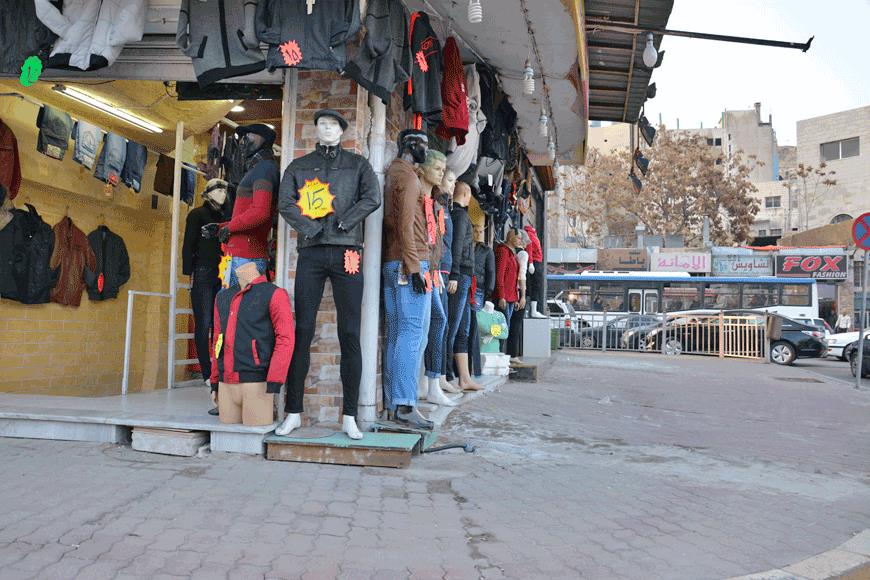
Retailers Slash Clothing Prices As Shoppers Tighten Belts
AMMAN - Steep discounts are retailers' last resort to counter the slump in apparel shopping and attempt to clear inventory off the racks, according to stakeholders.
Sultan Allan, representative of the clothing, footwear, fabrics and jewellery sector of the Jordan Chamber of Commerce and President of the Textile, Readymade Clothes and Footwear Syndicate, noted that discounts this time of the year are an“unusual” occurrence.
“Retailers are selling their products at cost just to meet their financial obligations and survive,” he told The Jordan Times, noting that discounts in the sector usually begin at the end of January.
He added that summer, which is the back-to-school shopping season, usually boosts sales in the sector. This year's demand, however, was“below expectations”.
Retailers also predicted much higher purchasing activity during Christmas and the holiday season, he added, noting that 2022 saw a 30 to 50 per cent decrease in demand compared with 2021.
The situation“isn't promising” and the sector is“unlikely” to bounce back from the pandemic's economic repercussions anytime soon, Allan said.
Although banks operating in Jordan agreed to postpone individual loan installments for December without delay commissions, purchasing power remains weak, he added.
This initiative on behalf of the banks is an attempt to mitigate financial burdens on citizens and stimulate the domestic economy, the Association of Banks in Jordan (ABJ) said in a statement last month.
Allan said that shoppers are still skimping on clothing purchases, as the tough economic situation is forcing consumers to prioritise spending on essentials, especially amid winter's heating costs.
He added that addressing weak purchasing power requires fundamental solutions, such as raising the minimum wage and closely examining the sector's operational costs.
Other challenges faced by the sector include unlicensed clothing stalls on sidewalks and the continued growth of online purchases and postal packages during the post-pandemic era, which has been marked by changing consumer habits, according to Allan.
“The taxation burden on local clothing retailers prevents them from fairly competing with online purchases,” he said.
While online packages worth below JD200 are subject to a fixed 10 per cent tax, clothing retailers' tax expenses exceed 35 per cent, including a 16 per cent tax and a 2 per cent income tax, Allan added.
According to Allan, saving the sector's retailers from permanent closures demands tax exemptions and concessional financing windows to help stores recover.
He also noted that the stability of clothing and footwear prices during the season is due to the decrease in freight costs, which skyrocketed following the outbreak of COVID-19 pandemic.
Shipping costs increased by 300 per cent in 2021, and began to return to their normal levels in September 2022, he said.
Jordan imports clothes from China, Turkey, Egypt and East Asia, according to Allan.
Malik Arjan, a worker at a local clothing store, said that his employer is announcing a 20 to 40 per cent discount on all products next weak.
“Discounts on winter clothes usually begin in February, but the low demand leaves us with no other option,” he told The Jordan Times.
Raji Thaher, an owner of a clothing store, noted that the sector is facing“tough” times.
The past three years have witnessed a wave of closures across the neighbourhood, which has been a known shopping destination with a concentration of clothing and footwear stores for decades, according to Thaher.
“There are very large numbers of stores competing for a small market with a weak purchasing power,” he told The Jordan Times.
Thaher's store is currently offering steep discounts to pull in shoppers.
The sector consists of roughly 12,800 retailers and employs around 68,000 workers, 98 per cent of which are Jordanian, according to Allan.

Legal Disclaimer:
MENAFN provides the information “as is” without warranty of any kind. We do not accept any responsibility or liability for the accuracy, content, images, videos, licenses, completeness, legality, or reliability of the information contained in this article. If you have any complaints or copyright issues related to this article, kindly contact the provider above.






















Comments
No comment